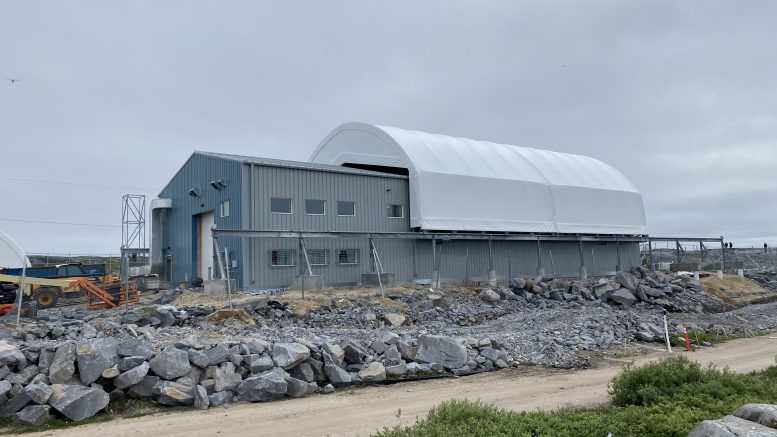Penn-co Construction has responded to U of M’s statement of defence and counterclaim in the ongoing $2.6 million lawsuit related to the construction of the Churchill Marine Observatory (CMO).
The CMO is a multidisciplinary research facility located in Churchill that celebrated its grand opening on Aug. 27, 2024. The facility is dedicated to studying oil spills and related contaminants, climate change, extreme weather and fresh-water marine studies.
The university and Penn-co entered the agreement for this project in two different phases.
The phase one contract, signed in 2017, was worth over $14.6 million, while the phase two contract was signed in 2019 with a value over $5.8 million. Together, the contracts brought the total project cost to approximately $20.5 million.
In a lawsuit filed on Aug. 30 in the Court of King’s Bench, Penn-co claims that it is entitled to compensation for costs incurred due to compliance with COVID-19 protocols, delays in acquiring necessary reviews from the department of fisheries and oceans (DFO) and issues with inadequate design plans.
The university filed a statement of defence and counterclaim on Sept. 20, stating that “Penn-co breached its obligation under the phase one contract and/or phase two contract, including any deficiency repair work and the common law duties it owed to the university.”
Penn-co responded to the university’s statement of defence and counterclaim on Nov. 22, submitting that the university’s counterclaim “should be dismissed, with costs.”
The construction firm denied all allegations made by the university in its statement of defence and counterclaim. In its reply, Penn-co stated that its request for compensation related to COVID-19 protocols had been properly adjudicated by the consultant.
The company further asserted that the university failed to adequately consider, or consider at all, its entitlement to compensation under the phase one contract.
Furthermore, Penn-co explained that a different drilling method would have been selected if the phase two contract document, specification and geotechnical reports accurately described the subsurface conditions at the project site.
This was in response to the university’s claim that the geotechnical report prepared by KGS group — the university’s engineering consulting firm — in the phase two contract entailed the accurate representation of the construction site, and that Penn-co selected the method by which it would complete the drilling that formed part of the phase two work.
Penn-co also debunked the university’s allegation that its contractors were demobilized from the job site and refused to continue the phase two work after encountering difficulties completing the drilling that formed part of the phase two work.
The company stated that it promptly sought guidance from the university’s consultant and continued on-site drilling efforts unsuccessfully.
After another week of unsuccessful attempts, its contractors halted operations and demobilized, awaiting instructions from the university or its consultant on how to proceed given the on-site subsurface conditions, according to the lawsuit.
Penn-co further explained that it was not responsible for the delay in the performance or resumption of the phase two work. It said that the delays are attributable to the university’s and consultant’s failure to provide timely direction with respect to the on-site subsurface conditions.
Lastly, Penn-co replied to the university’s claim that the construction company did not reach out to them, their consultant or KGS group to know whether the self-assessment of the job site had been finalized or if a review of the job site by DFO was necessary.
According to the reply, Penn-co denies unilaterally deciding that a DFO review was necessary or proceeding with the review process without informing or getting approval from the university or the consultant.
The construction firm stated that, since the university did not respond to its notice about moving forward with a DFO review, the university cannot now argue against the reasonable expectations and reliance created by its lack of response.
Penn-co’s defence to U of M’s counterclaim
According to Penn-co’s defence to the U of M’s counterclaims, the company “denies each and every allegation contained in the counterclaim.”
The company denied the allegation of failing to complete phase two work or the construction of the pumphouse in a good, workmanlike manner.
Penn-co said its contractors properly constructed the pumphouse and all related components in accordance with the phase two contract documents and the specifications and designs prescribed by the university and/or the consultant.
Penn-co also mentioned that it addressed the deficiencies that the university pointed out, and that it “completed the remedial work properly in a good, workmanlike manner and free from defects or deficiencies.”
The construction firm debunked allegations from the university of deficiencies that they were not made aware of, and that they are not responsible for any additional remedial work.


